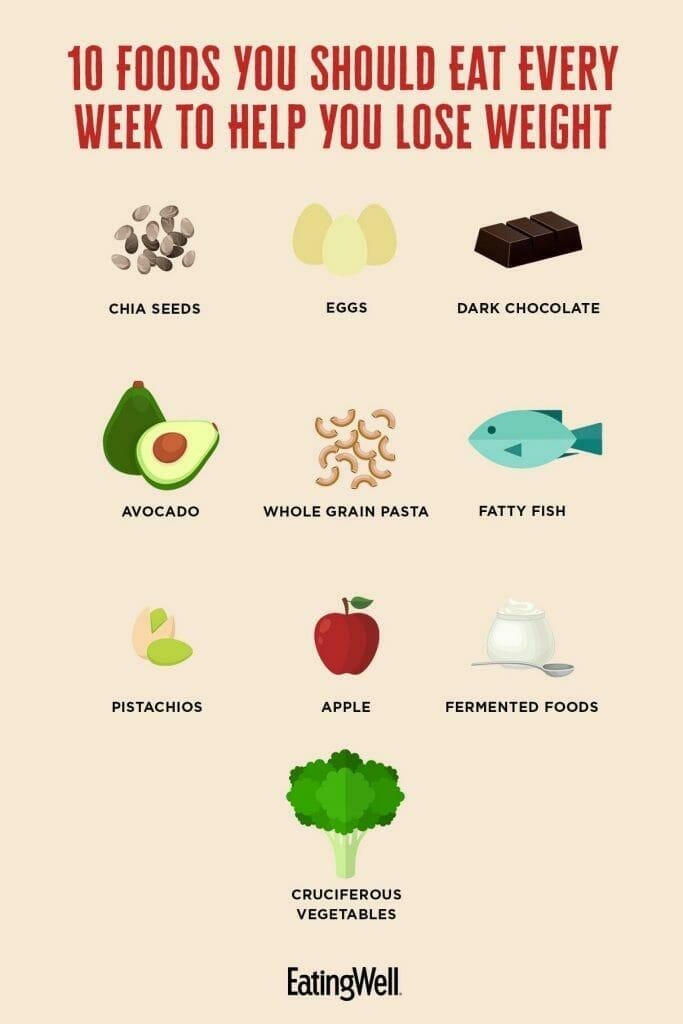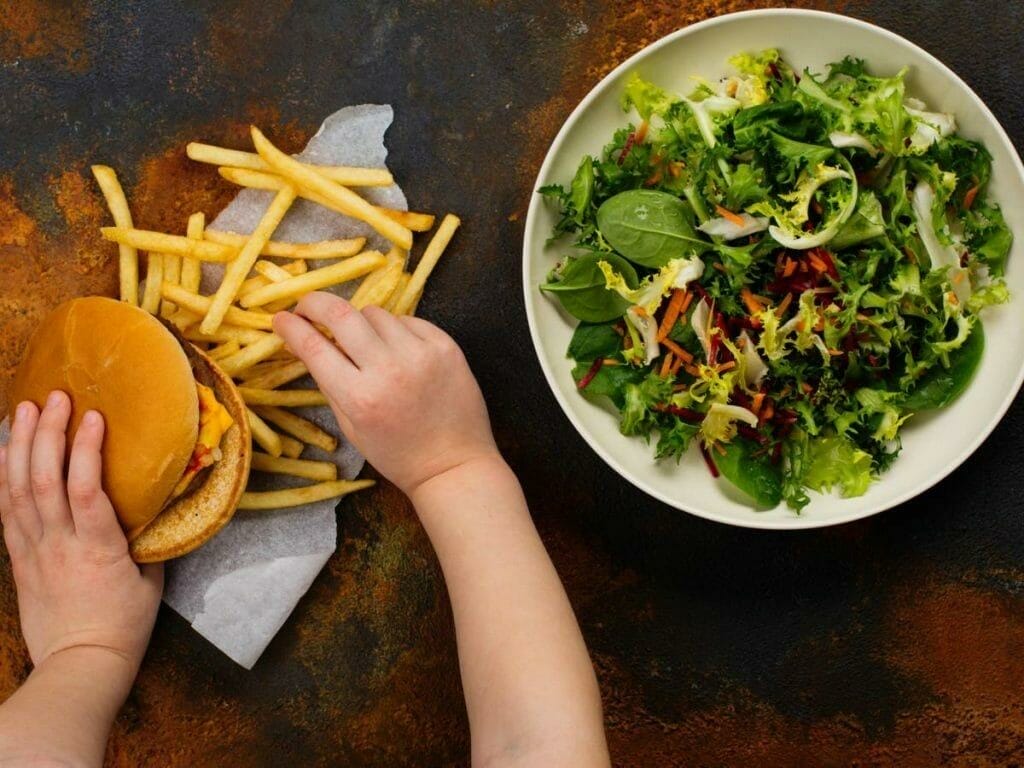Do you find it challenging to lose weight when you have a deep love for food? Despite your appreciation for delicious meals, there are strategies you can adopt to shed those extra pounds without sacrificing your love for good food. In this article, we will explore effective methods that allow you to enjoy food while still achieving your weight loss goals. By making some small adjustments to your eating habits and incorporating mindful choices, you can find a balance between indulgence and a healthier lifestyle.
Understanding weight loss and nutrition
Losing weight can often seem like a daunting task, especially when you have a love for food. However, with a solid understanding of weight loss and nutrition, you can make informed choices that will ultimately lead to a healthier and happier you.
Understanding the basics of weight loss
Weight loss essentially occurs when you consume fewer calories than you burn. It’s a simple concept, but it requires some effort to put into practice. By creating a calorie deficit through a combination of calorie reduction and increased physical activity, you can start shedding those extra pounds.
Importance of nutrition in weight loss
While the focus of weight loss is often on calorie reduction, it’s crucial to remember that nutrition plays a vital role as well. In order to fuel your body efficiently, you need to ensure you’re getting the right balance of nutrients. This includes consuming a variety of fruits, vegetables, lean proteins, whole grains, and healthy fats.
How does food affect our weight?
The foods we eat have a direct impact on our weight. Foods that are high in calories, added sugars, and unhealthy fats can contribute to weight gain. On the other hand, consuming nutrient-dense foods that are low in calories can facilitate weight loss. By making conscious choices about the types of food you consume, you can take control of your weight.
Differences between healthy and unhealthy foods
It’s important to distinguish between healthy and unhealthy food options. Healthy foods are those that provide essential nutrients and support overall well-being. These include fruits, vegetables, whole grains, lean proteins, and healthy fats. Unhealthy foods, on the other hand, are often high in calories, saturated fats, added sugars, and sodium. These include processed snacks, sugary beverages, fried foods, and desserts. By opting for nutritious choices, you can nourish your body while still enjoying your meals.
Changing eating habits
When it comes to weight loss, changing your eating habits is essential. By adopting healthier eating patterns, you can create sustainable habits that will contribute to your overall well-being.
Why changing eating habits is necessary?
Changing your eating habits is necessary for weight loss because it allows you to develop a healthier relationship with food. By making conscious choices about the foods you consume, you can avoid mindless eating and emotional bingeing. Additionally, adopting healthier eating habits can lead to long-term weight management and improved overall health.
Methods to regulate food intake
Regulating food intake is crucial in achieving weight loss goals. One effective method is mindful eating, which involves paying full attention to the present moment while eating, savoring each bite, and listening to your body’s hunger and fullness cues. Another strategy is portion control, which involves being mindful of serving sizes and using smaller plates and bowls to help manage portion sizes.
Overcoming cravings
Cravings can often derail your weight loss efforts. However, there are strategies you can employ to overcome them. One technique is distraction, such as engaging in a different activity or hobby when cravings strike. Another effective method is finding healthier alternatives to satisfy your cravings. For example, if you’re craving something sweet, consider opting for a piece of fruit or a small portion of dark chocolate.
Benefits of moderation
Adopting a moderate approach to eating can be beneficial when trying to lose weight. By allowing yourself to enjoy your favorite foods in moderation, you can avoid feelings of deprivation and maintain a healthy relationship with food. Moderation also helps you practice portion control and can prevent overeating, which is essential for weight loss.

Incorporating exercise into your routine
Exercise is a vital component of weight loss, as it helps burn calories and build lean muscle. By incorporating various types of exercise into your routine, you can maximize your weight loss efforts.
Types of exercises for weight loss
There are various types of exercises that can aid in weight loss. Cardiovascular exercises, such as running, cycling, and swimming, are effective in burning calories and improving cardiovascular health. Strength training exercises, on the other hand, help build muscle and boost metabolism. Additionally, incorporating activities such as yoga or Pilates can improve flexibility and promote overall well-being.
How much exercise is needed?
The amount of exercise needed for weight loss varies from person to person. However, the American Heart Association recommends at least 150 minutes of moderate-intensity aerobic activity or 75 minutes of vigorous-intensity aerobic activity per week, along with two or more days of strength training. It’s important to start gradually and progressively increase the intensity and duration of your workouts.
Advantages of regular exercise
Regular exercise offers numerous benefits beyond weight loss. It can enhance mood, reduce the risk of chronic diseases, improve sleep quality, and increase energy levels. Additionally, exercise can help maintain muscle mass during weight loss, which is essential for a healthy metabolism.
Making exercise enjoyable
To make exercise a sustainable habit, it’s important to find activities that you enjoy. Choose exercises that align with your interests and preferences, whether it’s dancing, hiking, or playing a sport. Additionally, vary your routine to keep it fun and engaging. Consider including a mix of cardiovascular, strength training, and flexibility exercises to keep your workouts interesting.
Mindful eating
Mindful eating is a powerful tool that can transform your relationship with food and support weight loss efforts. By practicing mindfulness while eating, you can promote a healthier mindset towards food and make more informed choices.
What is mindful eating?
Mindful eating is the practice of bringing full attention and awareness to the present moment while eating. It involves engaging your senses, savoring each bite, and paying attention to your body’s hunger and fullness cues. By slowing down and being fully present during meals, you can improve your eating habits and enjoy your food on a deeper level.
How to practice mindful eating?
Practicing mindful eating involves several key concepts. Firstly, it’s important to eat without distractions, such as watching TV or using electronic devices. Create a calm and peaceful environment for your meals. Secondly, bring your full attention to the food in front of you. Take the time to appreciate the colors, textures, and flavors. Lastly, listen to your body’s hunger and fullness cues. Eat when you’re hungry and stop when you’re satisfied, rather than eating until you’re overly full.
Benefits of mindfulness in weight loss
Mindful eating offers numerous benefits when it comes to weight loss. By cultivating a greater awareness of your body’s needs, you can prevent overeating and make more nutritious choices. Mindfulness also helps to reduce emotional eating and promotes a healthier relationship with food. By being present during meals, you can enjoy your food more fully and feel more satisfied.
Exercises to improve mindfulness
There are exercises you can do to improve your mindfulness in relation to food. One exercise is the raisin meditation, where you take a single raisin, observe it closely, feel its texture, smell its aroma, and savor its taste. Another exercise is the body scan, where you focus on different parts of your body, bringing awareness to any sensations or tension. These exercises can help you become more mindful not only during meals but throughout your daily life.

Creating balanced meals
Creating balanced meals is crucial for providing your body with the nutrients it needs while supporting weight loss efforts. By incorporating a variety of food groups into your meals, you can achieve a well-rounded and satisfying eating plan.
Components of a balanced meal
A balanced meal consists of several components that provide a range of nutrients. Start with a serving of lean protein, such as chicken, fish, tofu, or legumes. Include a variety of colorful fruits and vegetables, which provide essential vitamins and minerals. Choose complex carbohydrates, such as whole grains, to provide sustained energy. Finally, include a small amount of healthy fats, such as avocado or olive oil, for satiety.
Tips for creating nutritious and enjoyable meals
Creating nutritious and enjoyable meals doesn’t have to be complicated. Start by planning your meals ahead of time to ensure you have all the necessary ingredients. Experiment with different flavors and cooking techniques to keep your meals interesting. Involve a variety of food groups in each meal to achieve balance. Additionally, aim for a colorful plate to ensure you’re getting a range of nutrients.
The role of portion control
Portion control is essential when it comes to weight loss. It’s important to be mindful of serving sizes to avoid overeating. Using smaller plates and bowls can help trick your mind into thinking you’re eating more than you actually are. Additionally, practicing mindful eating and listening to your body’s hunger and fullness cues can help you eat appropriate portions.
How to balance food cravings with healthy eating
Balancing food cravings with healthy eating is a common challenge in weight loss journeys. Allow yourself to indulge in your cravings occasionally, but in moderation. By incorporating small portions of your favorite treats into a balanced eating plan, you can satisfy your cravings without derailing your progress. Additionally, finding healthier alternatives to your favorite indulgences can help you stay on track while still enjoying delicious food.
The impact of stress on weight loss
Stress can have a significant impact on weight loss efforts. Understanding the relationship between stress and weight gain is key in managing stress effectively and maintaining a healthy lifestyle.
The stress and weight gain link
Stress triggers the release of cortisol, a hormone that can contribute to weight gain. Chronic stress can disrupt appetite regulation, increase cravings for unhealthy foods, and promote emotional eating. Additionally, stress can lead to poor sleep, decreased motivation for exercise, and an overall negative impact on mental well-being.
How to manage stress for effective weight loss
Managing stress is vital for effective weight loss. Incorporate stress management techniques into your daily routine, such as exercise, meditation, or deep breathing exercises. Find healthy ways to cope with stress, such as engaging in hobbies, spending time with loved ones, or practicing self-care activities. Prioritizing stress management can support your weight loss journey and overall well-being.
Role of food in stress management
Food can play a role in stress management, but it’s important to choose healthy options rather than turning to comfort foods that are high in calories and unhealthy fats. Incorporate stress-reducing foods into your diet, such as fruits, vegetables, whole grains, and foods rich in omega-3 fatty acids. Additionally, be mindful of emotional eating patterns and find alternative ways to cope with stress.
Stress reduction techniques
There are various stress reduction techniques that can support weight loss efforts. Regular exercise is a powerful stress reliever, as it releases endorphins and promotes a sense of well-being. Mindfulness practices, such as meditation or deep breathing exercises, can help calm the mind and reduce stress levels. Additionally, engaging in activities that bring joy and relaxation, such as hobbies or spending time in nature, can effectively reduce stress and support weight loss.

Role of hydration in weight loss
Proper hydration is often overlooked, but it plays a crucial role in weight loss. By staying adequately hydrated, you can support your body’s functions and improve overall well-being.
How does hydration affect weight loss?
Hydration plays a role in weight loss through various mechanisms. Drinking water can help boost metabolism, as it requires energy to process and digest. Additionally, staying hydrated can promote feelings of fullness, reducing the likelihood of overeating. Proper hydration also supports proper digestion and nutrient absorption, which are essential for overall health.
Tips to stay hydrated
Staying hydrated doesn’t have to be complicated. Start by drinking water throughout the day, especially during meals and physical activity. Carry a reusable water bottle with you to ensure easy access to water. If you struggle with drinking plain water, add flavor by infusing it with fruits or herbs. Additionally, incorporate hydrating foods into your diet, such as fruits and vegetables with high water content.
Avoiding sugary beverages
While staying hydrated is important, it’s crucial to avoid sugary beverages such as soda, energy drinks, and sweetened juices. These drinks are often high in calories and added sugars, which can contribute to weight gain. Opt for water, unsweetened tea, or infused water as healthier alternatives.
Health benefits of drinking water
Drinking an adequate amount of water offers numerous health benefits. It helps maintain proper bodily functions, such as regulating body temperature, promoting healthy skin, and supporting kidney function. Proper hydration can also prevent dehydration, which can lead to fatigue, headaches, and decreased cognitive function. By prioritizing water intake, you can support your weight loss efforts and overall well-being.
Importance of quality sleep
Quality sleep is often overlooked in the weight loss journey, but it plays a significant role in overall health and weight management. By prioritizing sleep, you can optimize your weight loss efforts and enhance your well-being.
How does sleep affect weight loss?
Sleep has a profound impact on weight loss. Lack of quality sleep disrupts hormone regulation, specifically ghrelin, a hormone that stimulates appetite, and leptin, a hormone that signals fullness. Sleep deprivation can lead to increased hunger, cravings for unhealthy foods, and decreased satiety. Additionally, inadequate sleep negatively affects metabolism, decreases energy levels, and impairs decision-making skills, making it more challenging to make healthy choices.
Improving sleep habits for effective weight management
Improving your sleep habits can have a positive impact on weight management. Establish a consistent sleep schedule by going to bed and waking up at the same time each day, even on weekends. Create a sleep-friendly environment by keeping your bedroom cool, dark, and quiet. Limit exposure to electronic devices before bedtime, as the blue light can interfere with sleep. Additionally, prioritize relaxation techniques, such as reading or taking a warm bath, to promote quality sleep.
Role of food in sleep quality
Food choices can contribute to sleep quality. Avoid consuming large meals or heavy foods close to bedtime, as they can disrupt digestion and lead to discomfort. Additionally, limit caffeine and alcohol intake, as these substances can interfere with sleep. Focus on incorporating sleep-promoting foods into your diet, such as tart cherries, walnuts, yogurt, and herbal teas.
Sleep disorders and weight gain
Sleep disorders such as sleep apnea or insomnia can contribute to weight gain and hinder weight loss efforts. If you suspect you have a sleep disorder, it’s important to seek medical advice and explore treatment options. Treating sleep disorders can improve sleep quality, enhance overall well-being, and support your weight loss journey.

Lifestyle changes for weight loss
For long-term weight loss success, it’s essential to make sustainable lifestyle changes. By adopting healthy habits, you can create a supportive environment and achieve lasting results.
Changing habits for long-term weight loss
Changing habits is key to long-term weight loss success. Start by identifying unhealthy habits that may be contributing to weight gain and replace them with healthier alternatives. For example, if you tend to snack mindlessly in front of the TV, consider engaging in a different activity, such as going for a walk or practicing a hobby. Incorporate small changes gradually to avoid feeling overwhelmed and increase the likelihood of success.
Building a supportive environment
Creating a supportive environment can significantly impact your weight loss journey. Surround yourself with like-minded individuals who support your goals and encourage healthy habits. Join support groups or find an accountability partner to help you stay motivated and focused. Additionally, create a physical environment that promotes healthy choices by keeping nutritious foods readily available and removing temptations from your surroundings.
Importance of patience and consistency
Patience and consistency are crucial when it comes to weight loss. Remember that sustainable weight loss takes time and consistent effort. Avoid falling into the trap of fad diets or quick-fix solutions, as they often lead to short-term results and unsustainable habits. Instead, focus on making small, meaningful changes that you can maintain in the long run. Celebrate your achievements along the way and stay committed to your goals.
Coping mechanisms for setbacks
Setbacks are a normal part of the weight loss journey, and it’s important to have coping mechanisms in place when they occur. Instead of getting discouraged or giving up, use setbacks as learning opportunities. Reflect on the factors that contributed to the setback and develop strategies to overcome them in the future. Seek support from loved ones or professionals who can provide guidance and encouragement. Remember, setbacks are temporary, and with resilience and determination, you can get back on track.
Maintaining weight loss
Once you’ve achieved your weight loss goals, it’s important to implement strategies to maintain your progress. By incorporating healthy habits into your daily life and staying motivated, you can enjoy lifelong healthy habits.
Challenges of maintaining weight loss
Maintaining weight loss can be challenging due to various factors. Your body’s metabolism may adjust to the new weight, requiring ongoing efforts to sustain weight loss. Additionally, old habits may resurface if you’re not vigilant, leading to weight regain. Mental and emotional challenges, such as stress or boredom eating, can also pose obstacles to weight maintenance. Recognizing these challenges and being prepared to tackle them is essential for long-term success.
Tips for preventing weight regain
Preventing weight regain involves continued commitment to healthy habits. Stay active and incorporate physical activity into your daily routine. Continue to make mindful choices about the foods you consume, focusing on whole, nutrient-dense options. Keep track of your progress and regularly check in with yourself to make adjustments as needed. Surround yourself with a supportive network that values and encourages your healthy lifestyle. Lastly, seek professional guidance and support when necessary to ensure your long-term success.
Importance of follow-up check-ups
Follow-up check-ups with healthcare professionals are essential for maintaining weight loss. Regular appointments allow for ongoing monitoring of your progress, identification of potential health concerns, and adjustment of strategies if needed. Healthcare professionals can provide valuable guidance, offer support, and help you stay accountable to your weight loss goals.
Staying motivated for lifelong healthy habits
Staying motivated throughout your weight loss journey and beyond is critical for lifelong healthy habits. Set realistic and achievable goals that are meaningful to you. Focus on the positive changes you’ve experienced and celebrate milestones along the way. Find inspiration in success stories of others who have achieved lasting weight loss. Surround yourself with positive influences, whether it’s through social media, support groups, or a network of friends and family. Remember that your health and well-being are worth the effort, and you have the power to create lasting change.
In conclusion, losing weight when you enjoy food is possible with a comprehensive understanding of weight loss and nutrition. By changing eating habits, incorporating exercise, practicing mindfulness, creating balanced meals, managing stress, prioritizing hydration and sleep, adopting healthy lifestyle changes, and maintaining your progress, you can achieve lasting weight loss and enjoy a healthier and happier life. So, embrace the journey, prioritize self-care, and remember that you have the ability to create sustainable habits that will support your long-term well-being.









Leave a Reply
You must be logged in to post a comment.